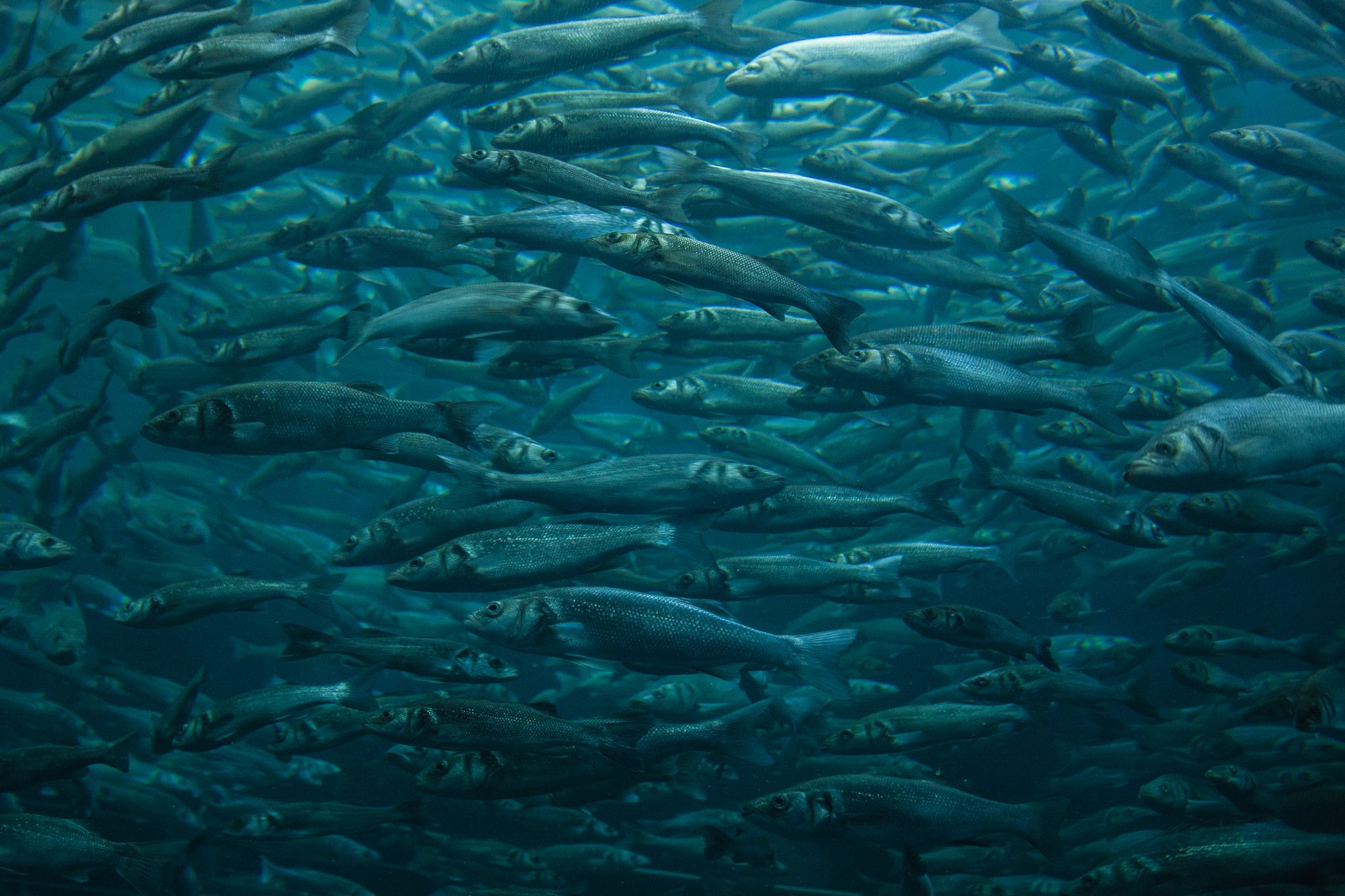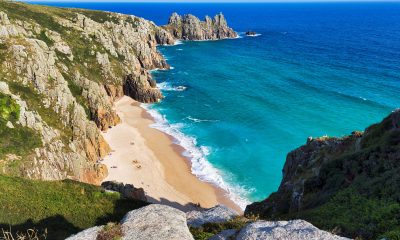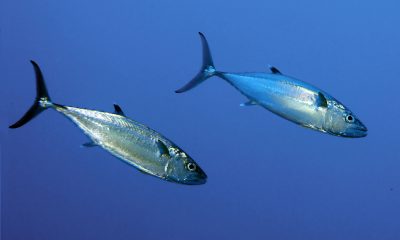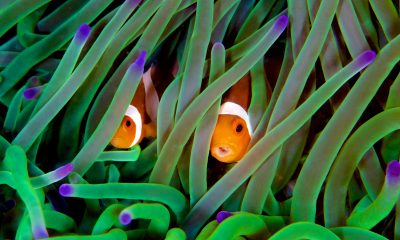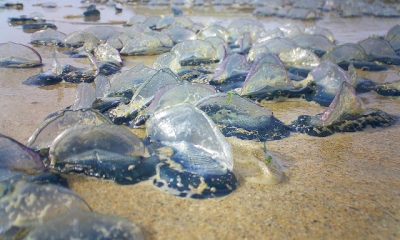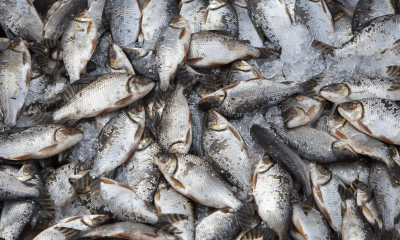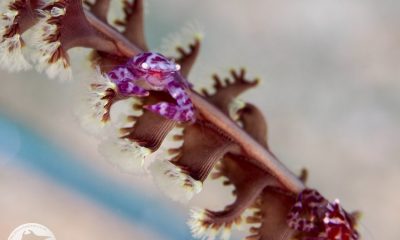Marine Life & Conservation
The Marine Conservation Society: More data and better management needed to fix our fisheries
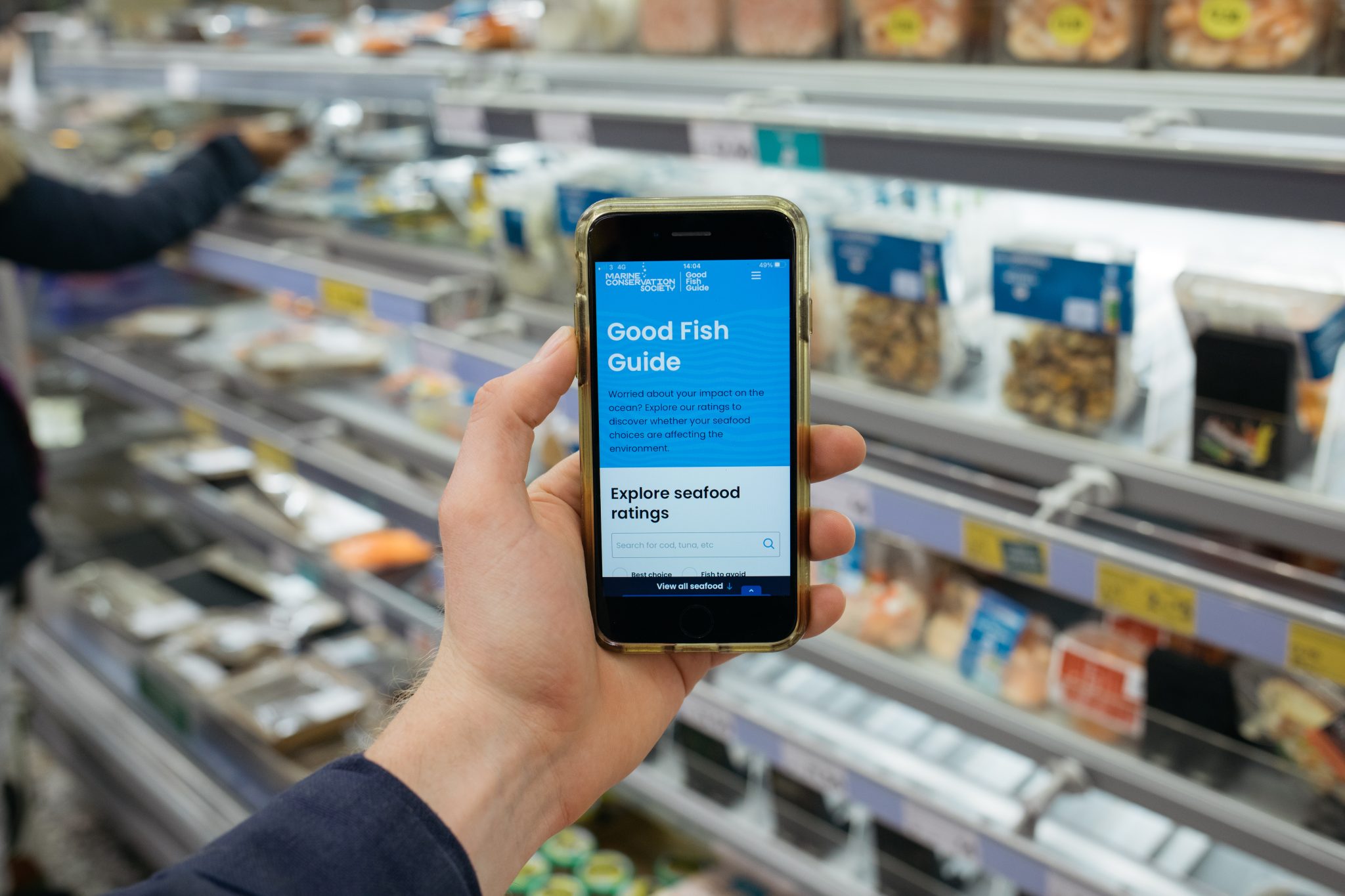
The Marine Conservation Society, the UK’s leading ocean charity, has released its latest ratings, painting a picture of ocean health and the sustainability credentials of seafood available in the UK.
November will mark two years since the UK Fisheries Act (2020) passed into law, setting in motion a new legislative framework for managing UK fisheries. The next step in the process, the Joint Fisheries Statement (JFS), is due to be finalised in November and has been identified by the charity as a key moment to fix our fisheries.
Kenneth Bodles, Head of Fisheries & Aquaculture at the Marine Conservation Society said: “With environmental laws recently under attack, we cannot afford to let the Joint Fisheries Statement be derailed. Early signs show some promising outcomes in the JFS, such as Fisheries Management Plans for bass and flatfish, but the devil will be in the detail.
“The UK Government and devolved administrations must underpin future fisheries policies and decision-making with strong scientific evidence and robust data. This is crucial for achieving sustainable fisheries and protecting and restoring our marine environment.”
The Marine Conservation Society is calling for all governments of the UK to hold strong on their promises in the JFS at a time when deregulation threatens to undermine existing marine conservation laws. The charity wants to see the JFS deliver an ‘ecosystem-based approach’ to fisheries management – taking a holistic view of how catching fish will affect the wider environment.
Fisheries management body, Natural Resources Wales, have shown the effectiveness of this approach, with Dee estuary cockles being green rated on the Good Fish Guide. The fishery adopts the principles of an ecosystem-based approach by protecting vulnerable habitats and ensuring enough cockles are left in the sea to keep local seabird populations healthy. The charity would like to see more of this best practice across the UK.
The Marine Conservation Society is currently working alongside WWF and RSPB, forming the Future Fisheries Alliance, to campaign for better data to be collected on boats at sea, using Remote Electronic Monitoring with cameras (REM). More data would allow scientists and governments to make informed decisions about how much seafood to catch, to reduce overfishing and put measures in place to reduce bycatch.
Charlotte Coombes, Good Fish Guide Manager, said: “Many of the ratings on the Good Fish Guide are negatively affected by a lack of data. If we knew more about what’s going on at sea, measures could be put in place to protect wildlife, and ensure we have a healthy ocean and a sustainable UK fishing industry.”
Around half of seafood produced in the UK is farmed. Farmed seafood has fared well in the latest Good Fish Guide update, with GLOBALG.A.P. certified Norwegian farmed halibut moving from an amber rating to green due to stricter requirements for sourcing fish feed. Meanwhile, wild halibut still appears on the IUCN (International Union for Conservation of Nature) list of threatened species and is red rated on the Guide.
Dawn Purchase, Aquaculture Programme Manager, said: “It’s a common misconception that farmed seafood is not as responsible a choice as its wild-caught counterpart. However, this season’s update to the Good Fish Guide has shown that for some species it is often a more ocean-friendly option.”
Farmed shellfish, including oysters, are green rated on the Guide, while their wild alternatives are often red or amber rated.
Find the latest sustainable seafood advice for wild-caught and farmed seafood on the Good Fish Guide, downloadable to your phone from www.mcsuk.org/goodfishguide.
The Good Fish Guide is constantly updating. Its latest tool, launched this month, is the ‘Seafood Checker’, a new tool to guide shoppers through to a sustainability rating. Asking questions such as ‘where was your fish caught’ and ‘does your fish have an ecolabel’, the step-by-step tool shows what to look out for on packaging to make sustainable choices easier. Try the new Seafood Checker at www.mcsuk.org/goodfishguide/seafood-checker/
Marine Life & Conservation
Leading UK-based shark conservation charity, the Shark Trust, is delighted to announce tour operator Diverse Travel as a Corporate Patron

 Corporate Patrons provide a valuable boost to the work of The Shark Trust. The Trust team works globally to safeguard the future of sharks, and their close cousins, the skates and rays, engaging with a global network of scientists, policymakers, conservation professionals, businesses and supporters to further shark conservation.
Corporate Patrons provide a valuable boost to the work of The Shark Trust. The Trust team works globally to safeguard the future of sharks, and their close cousins, the skates and rays, engaging with a global network of scientists, policymakers, conservation professionals, businesses and supporters to further shark conservation.
Specialist tour operator Diverse Travel has operated since 2014 and is committed to offering its guests high quality, sustainable scuba diving holidays worldwide. Working together with the Shark Trust will enable both organisations to widen engagement and encourage divers and snorkellers to actively get involved in shark conservation.
“Sharks are truly at the heart of every diver and at Diverse Travel, we absolutely share that passion. There is nothing like seeing a shark in the wild – it’s a moment that stays with you forever!” says Holly Bredin, Sales & Marketing Manager, Diverse Travel.
“We’re delighted to celebrate our 10th year of business by becoming a Corporate Patron of the Shark Trust. This is an exciting partnership for Diverse and our guests. We will be donating on behalf of every person who books a holiday with us to contribute towards their vital shark conservation initiatives around the world. We will also be working together with the Trust to inspire divers, snorkellers and other travellers to take an active role – at home and abroad – in citizen science projects and other activities.”
Paul Cox, CEO of The Shark Trust, said:
“It’s an exciting partnership and we’re thrilled to be working with Diverse Travel to enable more divers and travellers to get involved with sharks and shark conservation. Sharks face considerable conservation challenges but, through collaboration and collective action, we can secure a brighter future for sharks and their ocean home. This new partnership takes us one more valuable step towards that goal.”
For more information about the Shark Trust visit their website here.
For more about Diverse Travel click here.
Marine Life & Conservation
Shark Trust Asks Divers to help with Shark Sightings this Global Citizen Science Month

 Whether you are stuck for ideas of what to do with the kids or are off on the dive trip of your dreams. You can get involved in Citizen Science Month and help the Shark Trust by providing vital data about sharks are rays both close to home and further afield.
Whether you are stuck for ideas of what to do with the kids or are off on the dive trip of your dreams. You can get involved in Citizen Science Month and help the Shark Trust by providing vital data about sharks are rays both close to home and further afield.
In addition to reporting the sharks and rays you see on your dives, the eggcases you find on the beach, the Shark Trust is looking for some specific data from divers who are asked to report any Oceanic Whitetip and Basking Sharks.
Oceanic Whitetip Sharks
The Shark Trust are looking specifically for Oceanic Whitetip Shark sightings over the coming weeks and months. So, if you are diving anywhere in the world, please report your sightings via the website or app.
Website: https://recording.sharktrust.org/
App: Search The Shark Trust in your app store
The Oceanic Whitetip. Known for their incredibly long dorsal and pectoral fins, this species was once the most abundant oceanic-pelagic species of shark on the planet.
Large and stocky, they are grey or brown above, and white below and famous for their huge rounded first dorsal fin and paddle-like pectoral fins. The fins also highly prized within the shark fin trade. Whilst they are mostly solitary, Oceanic Whitetips do occasionally hunt in groups.
An inquisitive species, they were easy prey for fisheries. Combined with their low reproductive rate, they were inevitably at high risk of population depletion. And declines of up to 99% have been reported in certain sea areas. They are listed as Critically Endangered on the IUCN Redlist (2019).
Conservation efforts to discourage further declines include listing on CITES Appendix II and CMS Appendix I. They’re also the only species prohibited from take by all the Tuna RFMOs (Regional Fisheries Management Organisations). However, these measures do not mean that Oceanic Whitetips are not still caught – whether targeted or as bycatch – in some parts of the world. With populations declining at such a high rate, effective implementation of management measures is essential to ensure that the species can recover.
If you are lucky enough to get an image of an Oceanic Whitetip and you record your sighting on the Shark Trust app or website YOU CAN WIN! All images submitted with sightings, that also give consent to use in conservation messaging, will be in with a chance to win an Oceanic Whitetip T-shirt and mug. The competition will run until the end of “Shark Month” in July – so keep those sightings (and images) coming in.
Basking Sharks
Basking Shark (Cetorhinus maximus) season is upon us, and the Shark Trust is asking everyone to keep an eye out for these majestic giants over the summer months. If you see any, you can record your sighting to the Basking Shark Sightings database.
Each year, these mighty fish return to British waters to feed on plankton. You may see one, (or a few if you’re really lucky) from around April-October. They can be seen feeding at the surface of the water, where they look like they’re basking in the sun. Thus, their name!
Sighting hotspots around the British Isles include southwest England, Isle of Man, north coast of Ireland, and western Scotland. The Sea of the Hebrides is the most prolific sightings area in Scotland, but they have been spotted all around the coast and have even ventured into some of the sea lochs. The Shark Trust has received thousands of sightings since the Basking Shark project began, but more data is needed to truly understand what is going on with population numbers and distribution. You can help by recording your sightings this summer.
Great Eggcase Hunt
The Shark Trust has an Easter Egg Hunt with a difference for you to try. Take part in the Great Eggcase Hunt and get involved with a big citizen science project that helps shark, ray and skate conservation. And it’s an enjoyable activity for all the family.
The Shark Trust also want snorkellers and divers to record their underwater eggcase findings. Underwater records help pinpoint exactly where sharks and skates are laying their eggs and can help link to beach records. Learning the depth and substrate that they lay on also helps better understand the species.
Find out more: https://www.sharktrust.org/great-eggcase-hunt
Whether you are diving, snorkelling or exploring on the beach you can take part in Citizen Science Month and get actively involved in shark and ray conservation. Find out more: www.sharktrust.org
-

 News3 months ago
News3 months agoHone your underwater photography skills with Alphamarine Photography at Red Sea Diving Safari in March
-

 News2 months ago
News2 months agoCapturing Critters in Lembeh Underwater Photography Workshop 2024: Event Roundup
-

 Marine Life & Conservation Blogs2 months ago
Marine Life & Conservation Blogs2 months agoCreature Feature: Swell Sharks
-

 Blogs2 months ago
Blogs2 months agoMurex Resorts: Passport to Paradise!
-

 Blogs2 months ago
Blogs2 months agoDiver Discovering Whale Skeletons Beneath Ice Judged World’s Best Underwater Photograph
-

 Gear News3 months ago
Gear News3 months agoBare X-Mission Drysuit: Ideal for Both Technical and Recreational Divers
-

 Gear Reviews2 months ago
Gear Reviews2 months agoGear Review: Oceanic+ Dive Housing for iPhone
-

 Marine Life & Conservation2 months ago
Marine Life & Conservation2 months agoSave the Manatee Club launches brand new webcams at Silver Springs State Park, Florida


